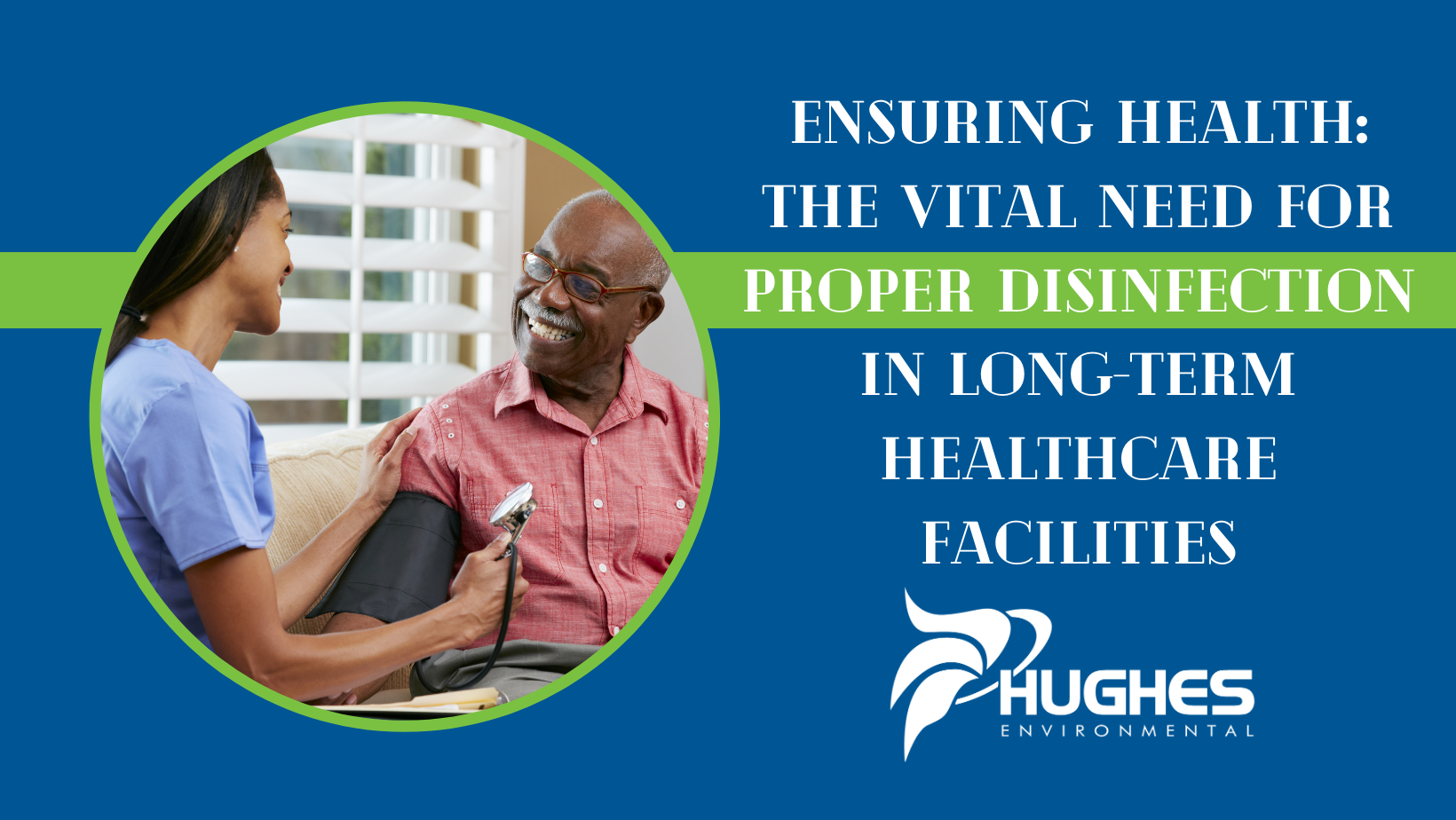
In the realm of long-term healthcare facilities, where vulnerable populations reside, the significance of proper disinfection cannot be overstated. Maintaining a clean and sanitized environment is crucial not only for the well-being of residents but also for the overall success of healthcare operations. In this blog post, we delve into the necessity of proper disinfection in long-term healthcare facilities and the far-reaching benefits it brings.
-
Protecting Vulnerable Populations: Residents of long-term healthcare facilities often include elderly individuals and those with compromised immune systems. Proper disinfection is paramount in protecting these vulnerable populations from infections and illnesses. A clean environment significantly reduces the risk of the spread of pathogens that could have severe consequences for residents' health.
-
Preventing Healthcare-Associated Infections (HAIs): Long-term care facilities are susceptible to healthcare-associated infections due to the close living quarters and shared spaces. Effective disinfection protocols are instrumental in preventing the spread of infectious agents, reducing the incidence of HAIs, and safeguarding the well-being of residents.
-
Maintaining Regulatory Compliance: Regulatory bodies set stringent standards for cleanliness and infection control in healthcare facilities. Adhering to these standards is not only a matter of ethical responsibility but also a legal requirement. Proper disinfection ensures compliance with regulations, mitigating the risk of penalties and legal repercussions.
-
Boosting Staff and Resident Confidence: A visibly clean and well-maintained environment fosters confidence among both healthcare staff and residents. Knowing that stringent disinfection measures are in place creates a sense of security, contributing to a positive atmosphere within the facility. This, in turn, can positively impact the overall quality of care provided.
-
Mitigating Antibiotic Resistance: Overuse of antibiotics is a growing concern in healthcare, leading to the emergence of antibiotic-resistant strains of bacteria. Proper disinfection practices help reduce the need for excessive antibiotic use by preventing infections in the first place. This contributes to the global effort to combat antibiotic resistance.
-
Enhancing Facility Reputation: A reputation for cleanliness and infection control is a valuable asset for long-term healthcare facilities. Families seeking care for their loved ones are more likely to choose facilities with a track record of proper disinfection. Maintaining a positive reputation is essential for the success and sustainability of healthcare institutions.
-
Crisis Preparedness: Recent global events have highlighted the importance of preparedness for health crises. Long-term healthcare facilities must be equipped to handle unforeseen challenges, and proper disinfection protocols are a key component of crisis preparedness. Rigorous hygiene practices ensure a resilient and adaptable healthcare environment.
In the realm of long-term healthcare, the imperative of proper disinfection cannot be overstated. From protecting vulnerable populations and preventing infections to maintaining regulatory compliance and fostering a positive reputation, the benefits are extensive. Embracing robust disinfection practices is not just a necessity; it is a commitment to the health, safety, and well-being of those entrusted to long-term care facilities. Hughes Environmental is here to help you create a safe and healthy facility for all your residents, staff, and guests with our Facility Disinfecting and UVC Light Disinfecting Services.

